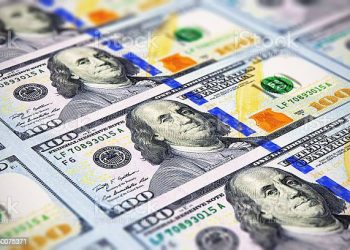The Nigerian naira showed significant recovery against the US dollar at the official Investor and Exporter (I&E) window, closing at N1,580.46 on Monday, September 9, 2024. This represents a 0.81% appreciation from the previous trading session on Friday, where the naira closed at N1,619.95. According to data provided by FMDQ, which tracks official currency transactions, the naira’s performance on Monday marks a positive turn in a period of continued volatility.
During Monday’s session, the naira experienced substantial intra-day fluctuations, reaching a high of N1,660 per dollar and a low of N1,570. This variability highlights the ongoing challenges in stabilizing the currency amid fluctuating demand and inflationary pressures. Market turnover also saw an uptick, rising to $197.37 million from $185.79 million on Friday, signaling an increase in foreign exchange transactions. Despite this, total market turnover in August reached $3.25 billion, a significant drop from July’s $4.34 billion, underscoring the decreasing volume of dollar transactions.
In the parallel market, where unofficial exchange rates apply, the naira traded between N1,606.78 and N1,650, remaining close to the official rate. The gap between official and parallel market rates has narrowed slightly, but the market continues to experience volatility.
One of the key factors influencing the naira’s recent appreciation is the Central Bank of Nigeria’s (CBN) decision to increase dollar supply. The CBN announced plans to sell $20,000 to eligible Bureau De Change (BDC) operators at a rate of N1,580 per dollar. The directive, issued by Dr. W.J. Kanya, Director of the Trade & Exchange Department, mandates that BDCs sell to end users at no more than 1% above the purchase rate. This measure is designed to alleviate pressure on the naira by increasing the availability of dollars and curbing further depreciation.
The CBN’s intervention comes at a critical time as the naira has seen a year-to-date depreciation of approximately 86%, primarily driven by inflation, increased market demand for dollars, and external economic factors. The fluctuation of oil prices, a key source of Nigeria’s foreign exchange earnings, has also played a significant role in the naira’s volatility. Brent Crude prices dropped to $71.65 per barrel, a concerning trend given Nigeria’s reliance on oil exports. If crude prices continue to decline, Nigeria’s dollar earnings may be further affected, creating additional headwinds for the naira’s exchange rate stability.
Looking ahead, analysts expect continued volatility in the naira due to these external factors. While the CBN’s measures aim to stabilize the currency, broader global economic developments and fluctuations in oil prices will likely keep pressure on the naira. The next few weeks will be critical in determining whether the current interventions can maintain the naira’s appreciation or if further depreciation is likely.











